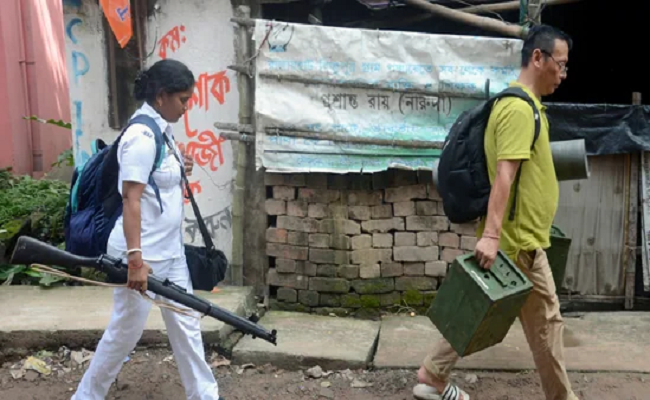SC halts mosque survey orders, restricts lower courts in pending cases
.gif)
.gif)

West Bengal is currently witnessing the commencement of the highly anticipated Panchayat Elections, as voters across the state participate in the democratic process amidst an atmosphere of high tensions and violent incidents. The elections, considered a significant litmus test for the 2024 Lok Sabha elections, hold immense importance in shaping the local governance of the state.
Today, polling stations opened their doors to an estimated 5.67 crore voters, who are expected to elect representatives for 928 seats across 22 zilla parishads, 9,730 panchayat samities, and 63,229 gram panchayats. This three-tier election will determine the composition of local administrative bodies, impacting the lives of millions of residents.
However, the road to the elections has been marred by widespread violence and killings, painting a grim picture of the electoral process. The death toll has risen to 22, with two more individuals allegedly losing their lives in Murshidabad district in the early hours of voting day. Such incidents have cast a dark cloud over the proceedings, raising concerns about the safety and security of voters.
Leading up to the elections, West Bengal has witnessed numerous instances of violence reported from different parts of the state. Just yesterday, a polling booth in Dihata, Cooch Behar, was ransacked and set on fire, adding to the growing list of acts of violence. Attacks on political candidates and their homes, such as the recent assault on a BJP candidate's residence in the Kalmati area of Bamanhat II Gram Panchayat, have created an environment of fear and intimidation.
In response to the escalating violence, the Calcutta High Court has ordered the deployment of central forces to ensure the maintenance of law and order for at least ten days after the announcement of election results. This move aims to prevent post-poll violence and safeguard the democratic process.
Governor CV Ananda Bose has actively urged residents of rural Bengal to exercise their voting rights, emphasizing the significance of their participation in shaping the state's future. Governor Bose has personally visited violence-affected areas, including Nabagram and Khargram in Murshidabad district, meeting with the families of deceased TMC and Congress workers.
However, political rivalries have also influenced the electoral climate. Tensions rose when the Governor's appeal prompted backlash from TMC leader and MLA Madan Mitra, who called for the Governor's removal, questioning his impartiality and alleging a bias towards the BJP.